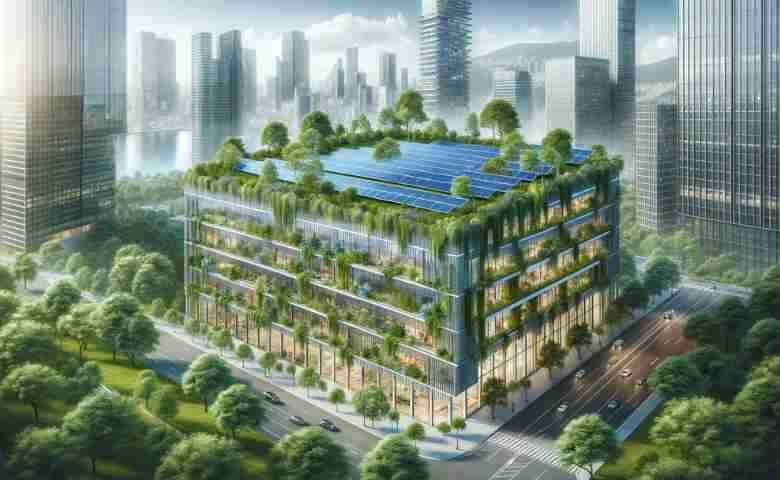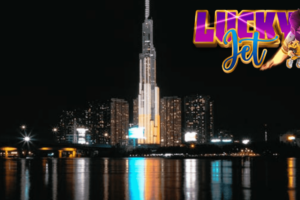
The current generation is witnessing a substantial change in global climatic conditions, which is regrettably not favorable. The melting of polar ice caps and the notable rise in average atmospheric temperature serve as evidence of this alarming shift. Consequently, it is crucial for us, as responsible individuals, to prioritize the water-related well-being of our homes and advocate for environmentally friendly and sustainable waterproofing methods.
Take Mumbai as an example: India’s metropolitan coastal city is prone to heavy humidity and monsoons. Recently, many waterproofing contractors in Mumbai have vowed to avoid the use of chemical waterproofing for their businesses or homes and, at the same time, promote the use of eco-friendly methods of waterproofing by employing natural substances and recycled materials for their sealants, which is slowly encouraging growth towards sustainable development.
Green waterproofing encompasses the usage of natural materials and durable water barriers that can be reused. This can be achieved through the application of reproduced sealants or recycled membranes obtained from discarded waste. In contrast, traditional waterproofing methods have caused considerable harm over time, resulting in the degradation of indoor air quality, excessive waste generation, and water pollution.
Not only Mumbai but even Pune, an eco-conscious, progressing city, has seen demand for the promotion of greenways of waterproofing. Several waterproofing contractors in Pune have now started to utilise green materials and eco-friendly substances to cater to the city’s urban waterproofing needs; hence, this has proven to be a practical step towards environmental conservation and water harvesting.
How Green Waterproofing Can Be A Game Changer
The shift towards green waterproofing goes beyond simply protecting buildings from water damage, as its primary goal is to tackle environmental concerns. Traditional materials used for waterproofing, like bitumen and chemical additives, have the potential to harm human health and contribute to pollution. These materials often release volatile organic compounds (VOCs), which can have a negative impact on air quality. In contrast, green waterproofing utilizes non-toxic, recyclable, and biodegradable materials, making buildings safer for both the environment and the people inside them.
Homeowners in Pune and Mumbai can greatly benefit from choosing eco-friendly waterproofing solutions. These solutions offer practical advantages such as efficient insulation using environmentally friendly materials, which effectively regulate indoor temperature and reduce energy consumption. An excellent example is the use of reflective coatings that prevent heat absorption during hot weather, thereby decreasing the need for air conditioning.
Waterproofing companies in Mumbai are training their staff to incorporate sustainable techniques and employ eco-friendly materials in their waterproofing services for large-scale buildings and residential complexes that deal with higher levels of sewage water flow. These energy-efficient approaches not only maintain satisfactory indoor air quality but also safeguard against the growth of detrimental fungi and molds. Additionally, the advantage of green waterproofing is that it naturally cools and dehumidifies the interior structures of homes.
Green Waterproofing in Pune: A Growing Trend
Pune’s focus on sustainable urban expansion is evident in the adoption of environmentally friendly building techniques. Leading this movement are the waterproofing contractors in Pune, who prioritize the use of eco-friendly materials like recycled rubber and plant-based sealants. By employing these techniques, they aim to minimize environmental damage without compromising durability. This becomes crucial in rapidly urbanizing areas, as it mitigates the negative impact of new construction projects on the environment.
Green waterproofing in Pune has a strong focus on water conservation, which is considered one of its greatest advantages. Many systems now incorporate rainwater harvesting, allowing homeowners to utilize this resource for landscaping and other needs. Opting for green waterproofing is a smart choice for those who support sustainability efforts as it helps in conserving water and reducing the strain on municipal water systems.
The Broader Impact of Green Waterproofing
In addition to its positive impact on the environment, green waterproofing provides numerous advantages for property owners. One notable benefit of utilizing eco-friendly techniques is their enhanced longevity compared to traditional methods, resulting in reduced repair needs. This feature is especially crucial in locations such as Mumbai, where severe weather conditions accelerate the deterioration of buildings. For instance, environmentally friendly waterproofing membranes possess flexibility and durability, helping to shield them from weather-related harm and prevent cracking.
Another significant benefit is the importance of health and safety. Conventional waterproofing materials are responsible for releasing volatile organic compounds (VOCs) and other harmful substances into the air, leading to poor indoor air quality. This is particularly concerning for households that spend a significant amount of time indoors. Opting for eco-friendly waterproofing alternatives allows homeowners to reduce their family’s exposure to these hazardous materials and create safer living environments.
The Rise of Green Waterproofing Techniques: An Eco-Friendly Movement





